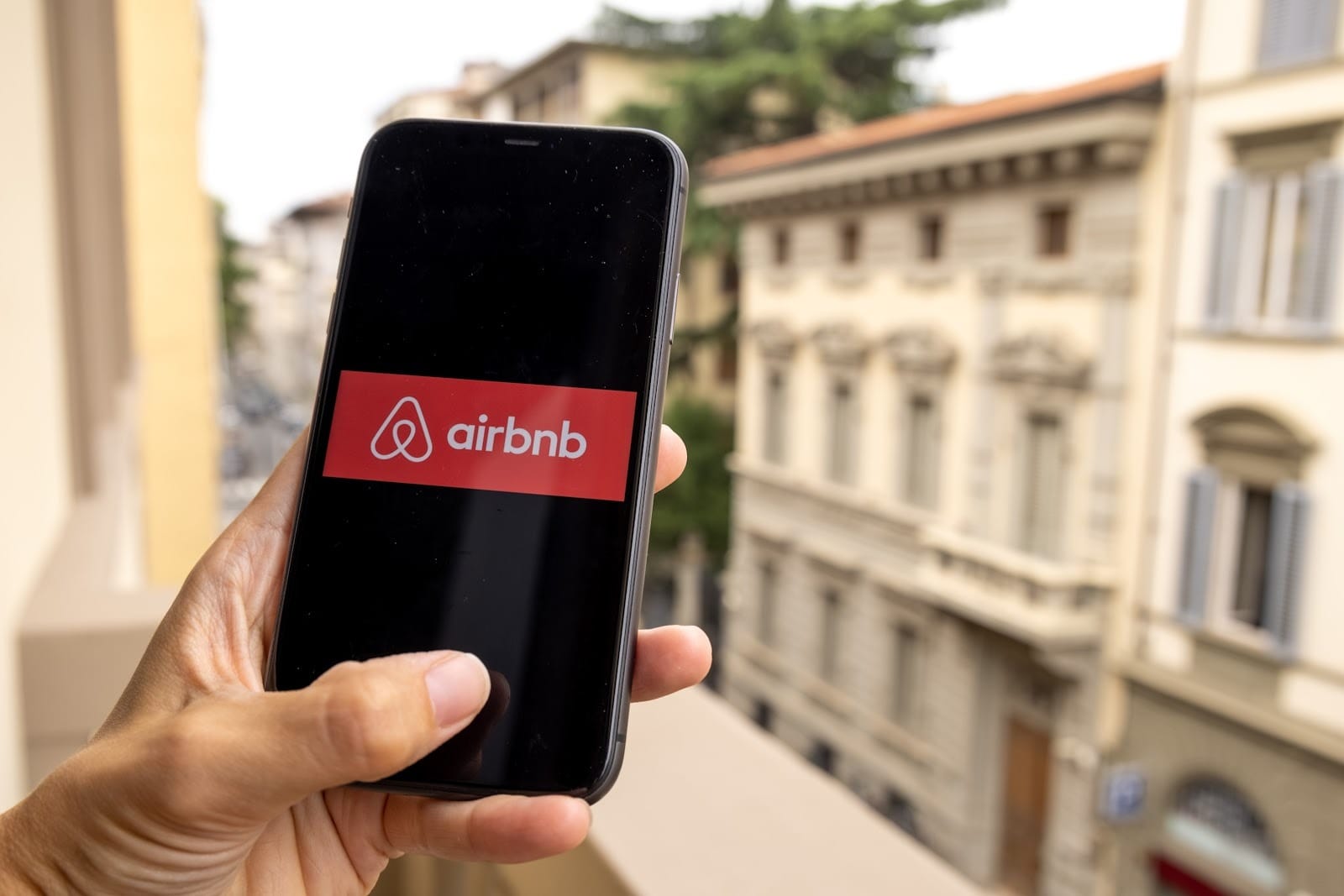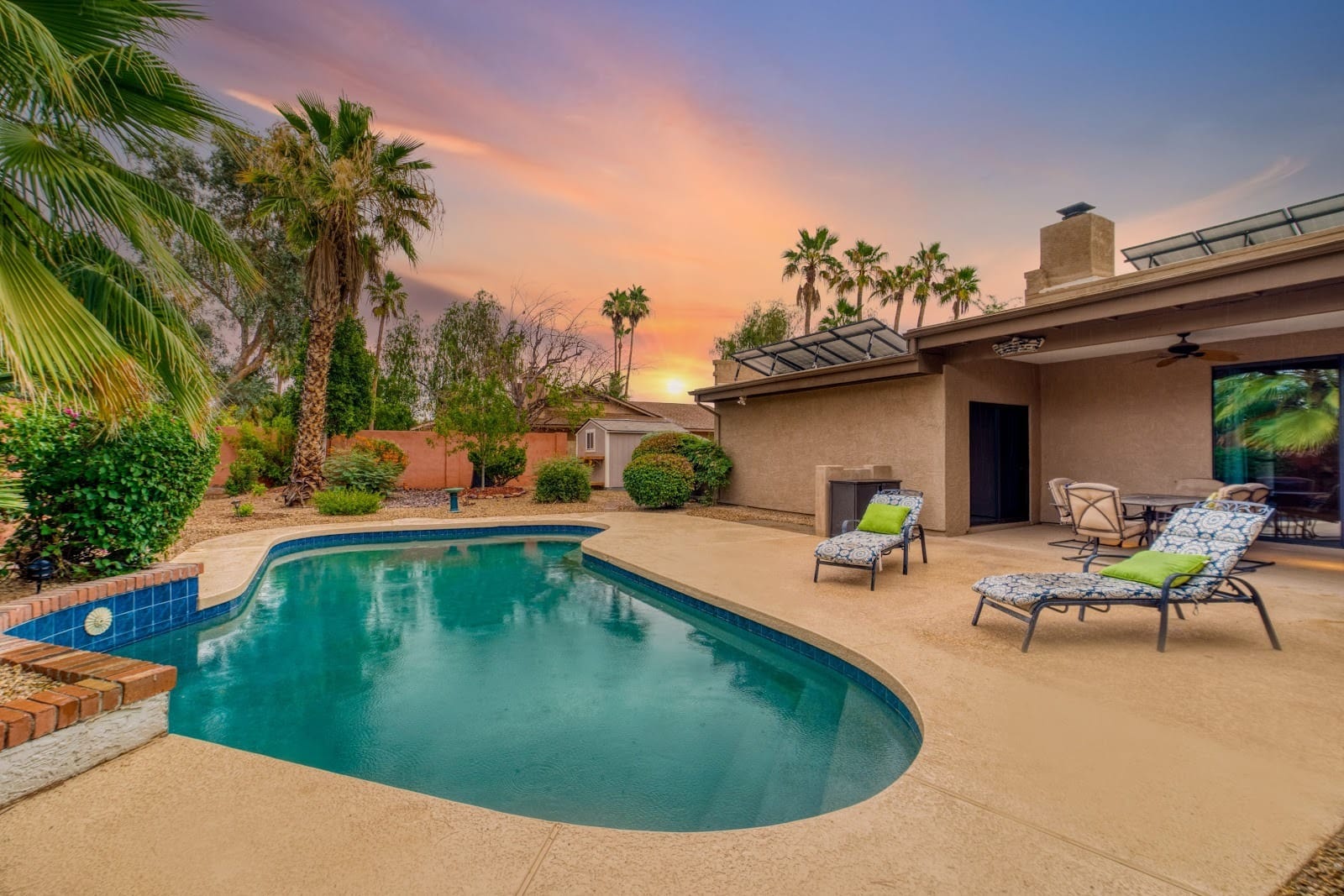How to Run an Airbnb International Business Abroad

Owning and running an Airbnb overseas is something that a lot of investors find really interesting. Sometimes they want to invest in a region where they can expect great returns. Sometimes the reason is the desire to combine a lifestyle in an exotic destination with an investment.
It can feel like a lot to handle. Buying property, understanding regulations and property ownership as a foreigner, language barrier, and managing a rental from afar present a few challenges. But it’s doable for U.S. investors.
A lot of investors are already doing it. Let’s go over common questions and strategies to start running short-term rentals abroad.

Can I Operate an Airbnb in a Country Where I’m Not a Resident?
Operating an Airbnb abroad as a non-resident is definitely possible, but it requires careful planning and attention to local laws, tax rules, and financial considerations.
Many U.S. investors make it work by using local entities, hiring reliable co-hosts or property managers, and leveraging technology to manage listings remotely.
It depends on the part of the world and the specific country you want to invest in. Not only do laws for foreigners vary from country to country, but the market conditions are different as well.
You really need to understand the country and the local area where you want to invest. Ideally, you want to have established connections with people you trust on the ground.
Benefits of Operating Short-term Rentals in Another Country
Operating an Airbnb business abroad has its advantages:
Portfolio diversification
Owning property in different countries spreads your investment risk. Currency fluctuations or economic slowdowns in one region won’t affect your entire portfolio.
Access to profitable markets
Searching for lucrative opportunities can lead you to another part of the world, especially if the market is profitable and costs are lower.
Mixing lifestyle and business
Being able to block off dates when you want to relax and enjoy yourself, and have that property generate rental income during the rest of the year, is gratifying for some people.
Challenges When Operating Short-term Rentals In Another Country
While it can increase your income, operating rentals abroad comes with some hoops to jump through and challenges.
You need to have a trusted person on the ground for management
Managing a property in another country without a trusted person on-site is very difficult. Language barriers can make it hard to even find a good handyman, as many of them don't speak English.
You can’t easily check if the place is clean or if repairs were done properly. Without someone reliable nearby, you’re vulnerable when issues or guest problems come up.
You have to get a local license, register with the local authorities, and pay local taxes
Each country, and often each city, has its own short-term rental regulations. You may be required to: register as a host or business with local authorities, obtain a rental license or permit, and pay taxes to local tax authorities.
Some countries impose restrictions on full title ownership for foreigners
If you plan to buy a property, avoid countries where foreigners don't have full title ownership. You want to be able to legally own the property in your name (and the land), just like a local citizen. This makes management, insurance, and future resale much simpler.
Local Regulations Around Airbnb Properties
Short-term rental rules are set by local governments (usually city, county, but also state-level regulations). Hosts are responsible for checking and following the changes in laws that apply where the property is located. Many jurisdictions require registration, a local license or permit, and the payment of local taxes.
What countries does Airbnb operate in?
Airbnb operates in 220+ countries. It means Airbnb has listings in all these countries around the world, but that doesn't exclude regulations that may restrict Airbnb properties, especially in bigger cities.
Have any countries banned Airbnb?
Airbnb operates in most countries, and it's uncommon for a country to ban Airbnb nationwide. Airbnb could suspend its operation mainly for political reasons, like in Russia and Belarus, after the invasion of Ukraine. However, that's a rare occurrence.
Registering with the local government
Compliance is a daunting but necessary obligation, whether you run Airbnb at home or abroad. Prepare that you may need to register for rental with the local authorities.
Many jurisdictions now require hosts to register and display a registration number in listings. This is already the law in some countries in Europe and many U.S. cities.
Researching city rules
Urban areas, huge cities like London, Paris, and New York, are introducing new regulations to limit short-term rentals. These rules don’t always apply citywide, but could target specific neighborhoods or zones. Local regulations should never be taken lightly.
For example, some parts of Spain, such as Barcelona, have seen growing protests and an anti-tourism movement as residents push to reclaim housing and community life. To address rising rent prices, Barcelona’s local government announced it will stop renewing tourism licenses for short-term rentals after 2028.
Because of these future projections, Barcelona isn’t the best place for Airbnb investment right now. If you don't keep up with local laws and the public sentiment toward short-term rentals, it’s easy to misjudge a market.

Find the Location and a Property
Investors who want to run a short-term rental business abroad usually plan to buy a property. That means there are a few key things to figure out before moving forward.
First, make sure foreigners are eligible to buy property in your target country. Some countries have restrictions that prevent non-citizens from owning land or limit how much property they can purchase. Others only allow foreign ownership through leasehold agreements or specific investment zones.
For example, in Bali, foreigners can’t directly own land under a freehold title. Consult trustworthy local sources and legal experts to fully understand the regulations.
Researching demand and markets
There are a lot of markets in the world, and a lot of them have thriving tourism. Does that mean investing in any of these locations where tourists flock to is okay? You’ll probably need to dig deeper into the numbers and market research before making a decision.
To help you with market research, you can start with market research tools like AirDNA, Airbitcs, or Alltherooms that assess market potential, ROI, and compare markets globally.
Does ROI make sense?
Relying on data is great, but make sure you consider all costs. That includes:
- Earning potential and estimated revenue for similar listings in the area
- The question of funding (are you paying cash, or will you take out a mortgage?)
- Maintenance costs and utilities
- Management costs
To interpret the numbers correctly, know that hitting a 10% ROI is typically viewed as a strong performance for a short-term rental.
Partner with a Local Property Manager and Team
Managing a vacation rental business from another country is not much different than managing it remotely in another city or state. In each case, what you need is a reliable co-host or a property manager.
Picking the right co-host
Your co-host is your right-hand person. They handle guest turnover, communicate with guests, and screen out problematic bookings. Choose someone experienced, trustworthy, and familiar with local regulations and customs.
For properties abroad, having a co-host who speaks the local language and understands neighborhood norms is invaluable.
Local team
Besides a co-host, who acts as your right hand to handle guest turnover, communicate with guests, and screen out problematic bookings, you also need a list of trusted contractors and handymen.
A local co-host can help organize this, but make sure you have at least one reliable plumber and electrician you can call when needed. Build a partnership with local vendors.
Most importantly, you need dependable cleaners to keep your property in pristine condition. If you introduce new amenities and new services, like access to a hot tub, you’ll also need specialized management to maintain them properly.
Cleaners
Cleanliness is one of the top factors that directly affects guest reviews and your property’s reputation. When managing a rental abroad, reliable cleaners are even more crucial because you can’t supervise them in person.
Provide clear instructions and checklists for every turnover, and detailed guidance for special amenities like hot tubs, spas, or kitchen equipment. A co-host or local manager should serve as the point of contact to handle any questions or language barriers.
Sometimes, when hosting remotely, hosts ask cleaners to take photos of the property after each cleaning.
Establishing emergency protocols
Including a list of emergency contacts for vendors should be part of your overall emergency protocol. Think of it this way: it’s not a question of if, but when something will break or leak. Having a plan in place in advance ensures that you and your team know exactly how to handle the situation.
Part of your protocol can also include a guest communication template to use when guests report issues or complaints.
Legal Side of Your Rental Business
When running a short-term rental abroad, there are a few key legal considerations to keep in mind:
STR Insurance
Liability is your legal responsibility if something goes wrong at your rental. For example, a guest slips and gets injured, damages property, or has an accident with amenities like a hot tub or fireplace.
Standard homeowner insurance usually doesn’t cover all these situations. Short-term rental insurance is designed specifically to protect you from financial loss and legal claims. If you buy property abroad, make sure your insurance covers what you need and international ownership.
Do I need an LLC?
Some hosts use an LLC or local company for liability protection and tax reasons. Whether you need an LLC depends on local legal, tax, and banking rules. Consult a lawyer or accountant to better understand your position.
Tax Obligations
If you live in the U.S. and your income is going into your U.S. account, you need to pay income taxes. At the same time, the country where you operate short-term rentals may ask you to pay them some taxes too.
That's where the double taxation issue can arise.
Double taxation issue
Because both your home country and the foreign country may tax the same income, you could face double taxation. How to handle this?
For example, in the U.S., if you paid income tax to a foreign country, you can generally claim a Foreign Tax Credit (FTC) on your U.S. return to reduce the U.S. tax on that same income.
The U.S. has bilateral tax treaties with many countries that can reduce taxes on certain types of income or determine which country has primary taxing rights. Contact a tax professional to get guidance for your specific situation.

Tools for Remote Management of Vacation Rentals
Remote rental management is easier since technology gives you a great deal of control over your property.
Consider using:
Smart lock
A smart lock solves the problem of physical keys. You can grant guests temporary access codes, change the codes after checkout, and avoid the hassle of key handoffs or lost keys. Some systems even let you monitor when guests arrive or cleaners leave.
Security cameras
Gosts often use CCTV or smart security cameras outdoors to monitor entrances. Note that it's forbidden to monitor private spaces. So make sure cameras are disclosed and positioned at the right angle so you can monitor the entrance and the outdoor space. Indoor monitoring is limited to things like smart sensors (smoke detectors, thermometers).
Property management system
Remote property management becomes so much easier when you use a property management tool. A good PMS allows you to stay on top of all operations, even if you’re not on site or not even in the same country.
Here are a few reasons we think iGMS can improve your remote short-term rental management:
- Manage all platforms and bookings from one place – Airbnb, Vrbo, and Booking.com. This way, you never have to juggle multiple accounts or deal with double bookings that can hurt your host reputation.
- Automate team tasks – Cleaning and maintenance tasks are sent automatically based on check-in and check-out dates.
- Automate guest communication – Messages like check-in/check-out instructions, mid-stay updates, and reviews are all sent automatically.
- Build direct booking websites – You can create your own site in a few simple steps to get direct bookings and avoid paying platform fees.
Check it out for yourself with our demo.







